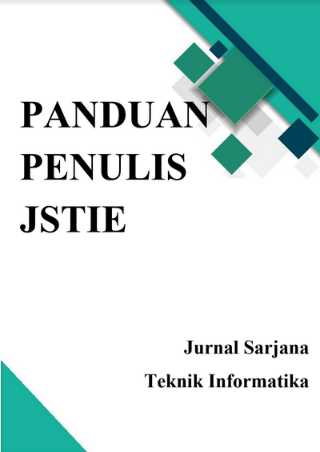PEMBUATAN MODEL TATA KELOLA IT UNTUK PROSES AKADEMIK MENGGUNAKAN COBIT 4.1 (STUDI KASUS : UNIVERSITAS XYZ)
DOI:
https://doi.org/10.12928/jstie.v1i1.2544Abstract
Proses bisnis akademik saat ini telah terbantu dengan adanya beberapa SI namun SOP akademik saat ini belum menerapkan sistem secara baik. Akibatnya, sebagian tanggung jawab IT yang seharusnya dilaksanakan pada setiap unit dilimpahkan pada bidang IT, karena belum diatur di dalam SOP. Oleh karena itu diperlukan suatu model tata kelola yang bisa mengatasi permasalahan tersebut. Penelitian ini dilakukan dengan kuesioner yaitu : kuesioner I management awareness dan kuesioner II maturity level. Kuesioner I ditujukan untuk melakukan analisis identifikasi resiko, sedangkan kuesioner II ditujukan untuk pengukuran tingkat kematangan. Hasil dari penelitian berupa Model Tata Kelola IT untuk proses akademik yang diwujudkan dalam bentuk usulan kebijakan dan prosedur proses akademik TI. Dan juga dilakukan uji kelayakan Model Tata Kelola TI proses akademik yang secara umum responden sudah menyatakan kesesuaian sehingga layak untuk diterapkan.
Kata Kunci : tata kelola, proses akademik, COBIT, universitas xyz.References
IT Governance Institute, COBIT 4.1, IT Governance Institute, http://www.isaca.org
Wolgang B.Pandji, 2007, Perancangan Model Tata Kelola Teknologi informasi berbasis COBIT pada Proses Pengelolaan Data Studi Kasus : PT PLN (Persero) Distribusi Jawa Timur, ITB, Bandung.
Kridanto Surendro, 2009, Implementasi Tata Kelola Teknologi Informasi, Informatika, Bandung.
U. Tresna Lenggana, 2007, Perancangan Model Tata Kelola Teknolog informasi pada PT. Kereta Api Indonesia Berbasis Framework COBIT, Institut Teknologi Bandung, Bandung.
Salahuddin Al Arif Mhd, Perancangan Tata Kelola Teknologi Informasi Studi Kasus : PT XYZ Indonesia, 2011.
COBIT Steering Committee and the IT Governance Institute, 2000, COBIT (3rd Edition) Implementation Tool Set, IT Governance Institute, http://www.isaca.org.
IT Governance Institue, 2003, IT Governance Implementation Guide ; “How do I use COBIT to implement IT governance?â€, IT Governance Institute, http://www.isaca.org.
Mafatihus Solehah Husniati, Perencanaan Sistem Informasi di Fakultas Teknologi Industri UAD menggunakan kerangka kerja Zachman, 2011.
Yulianingsih Dyah Ayu, Pembuatan Enterprise Arsitektur Planning Teknologi Informasi Layanan Akademik menggunakan Zachman Framework Studi Kasus : Universitas XYZ, 2011.
Jogiyanto HM, 2011, Sistem Tata Kelola Teknologi Informasi, Edisi I, Penerbit Andi, Yogyakarta.
Downloads
Published
Issue
Section
License
License and Copyright Agreement
In submitting the manuscript to the journal, the authors certify that:
- They are authorized by their co-authors to enter into these arrangements.
- The work described has not been formally published before, except in the form of an abstract or as part of a published lecture, review, thesis, or overlay journal. Please also carefully read Journal Posting Your Article Policy.
- The work is not under consideration for publication elsewhere.
- The work has been approved by all the author(s) and by the responsible authorities – tacitly or explicitly – of the institutes where the work has been carried out.
- They secure the right to reproduce any material that has already been published or copyrighted elsewhere.
- They agree to the following license and copyright agreement.
Copyright
Authors who publish with Jurnal Sarjana Teknik Informatika agree to the following terms:
- Authors retain copyright and grant the journal right of first publication with the work simultaneously licensed under a Creative Commons Attribution License (CC BY-SA 4.0) that allows others to share the work with an acknowledgement of the work's authorship and initial publication in this journal.
- Authors are able to enter into separate, additional contractual arrangements for the non-exclusive distribution of the journal's published version of the work (e.g., post it to an institutional repository or publish it in a book), with an acknowledgement of its initial publication in this journal.
- Authors are permitted and encouraged to post their work online (e.g., in institutional repositories or on their website) prior to and during the submission process, as it can lead to productive exchanges, as well as earlier and greater citation of published work.







